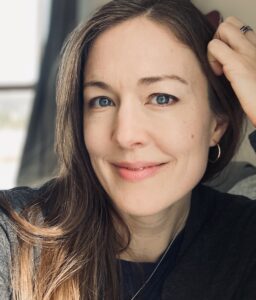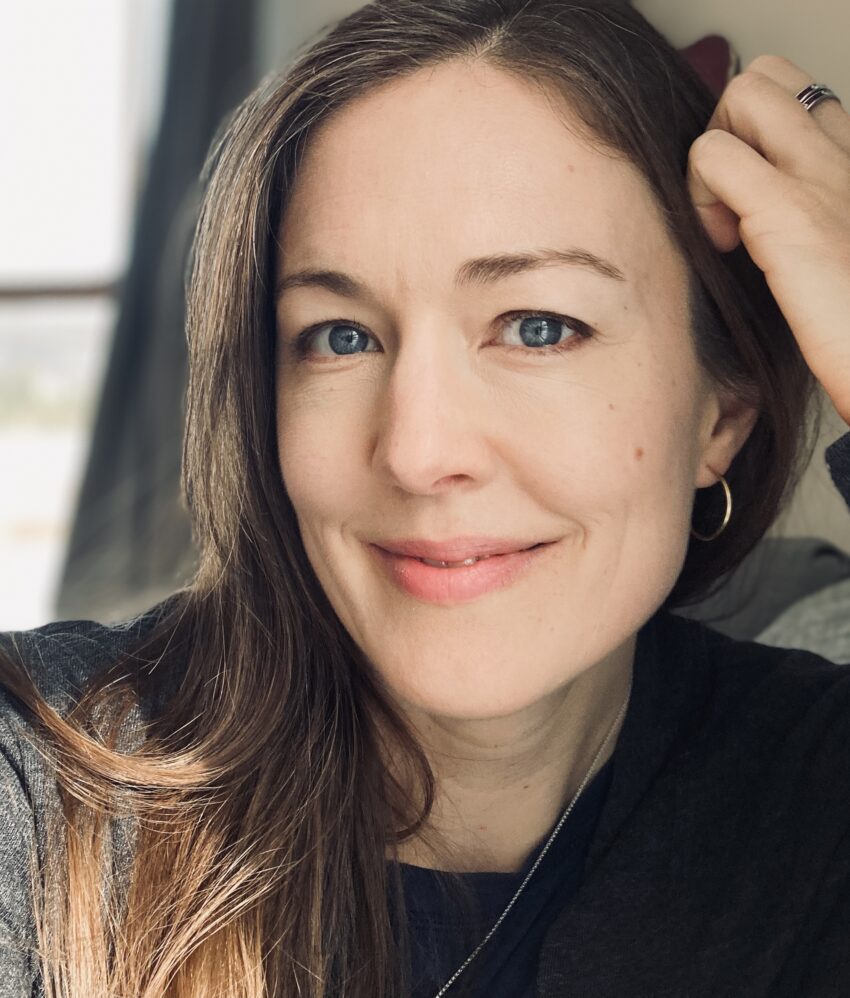March 15, 2021

Hinesburg resident Francesca Arnoldy is in high demand today, as an expert in providing emotional support at the beginning and end of life. She is the program director of UVM’s End-of-Life Doula Professional Certificate program.
The author and educator once only aided people with birth but, like the doula field itself, has now expanded to cover death as well.
Doulas, whether it’s end-of-life care or beginning-of-life care, do the work of “preparing and planning and processing,” said Arnoldy.
For end-of-life care, preparing and planning means discussing how a client would like to experience death, then putting their wishes into action.
“Some people want noise and they want activity and they want to be able to hear the sounds of life happening all around them,” she said. “Other people desire peacefulness and serenity… and for people to enter and shift their energy very intentionally. We talk about that ahead of time. What makes you feel most honored?”
The processing part involves discussing the client’s life, its best and worst moments, any accomplishments or regrets. Then the doula will help create a legacy project, or something they can leave behind for others. These can range from recordings of their voice, scrapbooks, cookbooks or even writing their obituaries. Processing also involves speaking to the family after a death and working out complex emotions.
Arnoldy made it clear that doulas have a lot of range and not everyone may want the basic services. She also emphasized that the work is meant to be therapeutic but it’s not therapy.
“We are nonmedical emotional support people,” she said. “There is room in there for creativity.”
As a new occupation, end-of-life doulas work in unregulated territory. Insurance companies do not cover all the costs, if they cover any at all. Payment methods differ between individual doulas, who have to balance their financial situation with keeping their services affordable.
“Many of us will offer sliding scale rates,” she said, “and some pro-bono work and some discounts, some payment plans, some of us have scholarship funds that we fundraise for and some of our clients who have the means will pay extra to pay it forward.”
Arnodly added, “Doulas are pretty creative with this.”
Though “doula” is an ancient Greek word, today’s doulas originate with American baby boomers, said Arnoldy, who sought to personalize the birth experience.
“Birth is a really human experience,” she said. “It’s very natural and normal. We have all these medical [advances] at our fingertips. Could there be space here to think about my own birth and my unique preferences…?”
Only recently has death been discussed in the same manner, Arnoldy said. “We’re moving in this direction of reclaiming death as a natural part of life and realizing how we can make it a safer, more meaningful, more personalized experience.”
She first learned about doulas during her second pregnancy. Seeking to be better informed, she decided to try becoming a postpartum doula. It was only after the birth that she realized she’d found her calling.
“This is a momentous occasion in your life,” she said. “You deserve to have all the information and support needed to make this the most meaningful, personally-affirming, positive, safe journey possible, and I could do that as a Doula…”
Afterwards, Arnoldy went to work, supporting new families and becoming a childbirth educator. But it was another significant event in her life that led her to the work she does today: the death of her grandfather.
“He had hoped to stay home for this dying experience and that’s a lot of work,” she said. “They were receiving support from hospice, which is great. It was my grandmother who was really the primary care provider around the clock.”
To offset the pressure on her grandmother, Arnoldy began to do tasks for her grandfather such as watching over him, reading him prayers and coordinating hospice nurse visits. Her work as a doula prepared her for it; she could be supportive despite not knowing what to expect. By the time he had passed, she had seen family members both in pain, but also relieved knowing that she was there to help.
“I very quickly realized,” she said, “that my role during that dying was really similar to the role I played during someone’s birthing. And I became more and more interested in holding space for both.”
In 2017, the University of Vermont launched the End-of-Life Doula Professional Certificate, a Continuing Education program developed by Arnoldy. It was partially funded by the Cabot Creamery Cooperative as part of an initiative celebrating their centennial. The eight week course now teaches up to 125 students a time, using a curriculum she created after a year of research. It runs up to five times a year.
In 2018, she published the guidebook and textbook for the course “Cultivating the Doula Heart: Essentials of Compassionate Care.” The University of Vermont also launched a second certificate program teaching end-of-life care with pets.
In February 2020, with signs of the pandemic on the horizon, Arnoldy made the decision to stop in-person doula services. Demand for doulas has only increased in that time, due to the COVID-19 pandemic. Arnoldy said she thinks their work is more essential now than ever.
In the meantime, she has also been working as a research investigator and Director of the Doula Intervention of the StoryListening project, a UVM study which asks participants to share with researchers their experiences with loss. The Vermont Conversation Lab website says the study is about determining which aspects of storytelling are most comforting to the grieving; However, Arnoldy hopes that it’ll help with treatment of complicated grief, an intense, long-lasting grief associated with isolation, that’s harder to heal from than typical grief.
As for anyone who’s suffered a loss recently, Arnoldy’s advice is to “please take good care of yourself and try to access any compassionate supports that are available to you.”
“You are deserving of care,” she said. “It’s a journey that takes time to heal. Your healing will continue.”
The Community News Service is a project of the University of Vermont’s Reporting & Documentary Storytelling Program.

